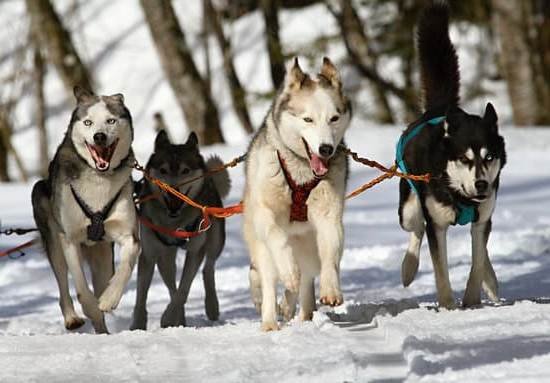Service dogs play a vital role in assisting individuals with disabilities, providing them with the support and independence they need to navigate their daily lives. These highly trained animals are more than just pets; they are intelligent companions that perform specific tasks to help mitigate disabilities. However, despite their significant contributions, service dogs in training may sometimes face challenges when it comes to accessing public spaces. This raises the question: can a hotel refuse a service dog in training?
To better understand this issue, it is important to recognize the importance of service dogs and the legal rights they possess. These specially trained animals are crucial for individuals with physical disabilities, psychiatric conditions, or medical conditions. They can assist with tasks such as guiding visually impaired individuals, alerting those with hearing impairments of sounds or danger, retrieving medication for those experiencing seizures, and providing emotional support to individuals with mental health disorders.
In recognition of their importance, service dogs are protected under various laws and regulations. In particular, the Americans with Disabilities Act (ADA) ensures that people with disabilities have the right to be accompanied by their service dogs in places that are open to the public. However, there may be some differences when it comes to service dogs in training compared to fully trained service dogs.
In this article, we will delve into this complex issue and explore the legal status of service dogs in training. We will examine the provisions outlined by the ADA and discuss conflicting perspectives on hotel policies regarding these assistance animals. Additionally, we will provide real-life examples where hotels have refused access to service dogs in training and analyze the potential impact of such refusals on individuals with disabilities.
Stay tuned as we navigate through this multifaceted topic and promote inclusivity and understanding towards service dogs in training and individuals with disabilities.
Defining the Terms
Service Dog
A service dog is a highly trained and specialized assistance animal that is legally designated to perform specific tasks to assist individuals with disabilities. These disabilities can range from physical impairments, such as mobility limitations or visual impairment, to invisible disabilities like epilepsy or post-traumatic stress disorder (PTSD). Unlike therapy dogs and emotional support animals, service dogs undergo extensive training to learn tasks that directly mitigate their handler’s disability.
These tasks could include guiding the visually impaired, alerting individuals with hearing loss to important sounds, providing stability and balance for those with mobility issues, or even detecting the onset of a medical condition like a seizure. Service dogs are individually trained to meet the unique needs of their handlers and play an invaluable role in promoting independence and improving the quality of life for people with disabilities.
Therapy Dog
Therapy dogs also provide comfort and assistance, but their roles differ significantly from service dogs. While service dogs assist individuals with disabilities in performing specific tasks related to their disability, therapy dogs offer emotional support in various settings, such as hospitals, schools, nursing homes, or disaster areas.
Their purpose is to interact with people other than their handlers and provide comfort and companionship. Therapy dogs are generally well-trained, socialized animals; however, they do not possess the same legal access rights as service dogs when it comes to public spaces like hotels or restaurants.
Emotional Support Animal
Emotional support animals (ESAs) are another category of assistance animals but serve a different role compared to service and therapy dogs. ESAs are prescribed by mental health professionals to provide emotional support or therapeutic benefits for individuals experiencing mental health conditions such as anxiety or depression.
They do not need specialized training like service dogs but offer comfort through their presence and companionship. However, it’s crucial to note that ESAs do not possess the same public access rights as service dogs under the Americans with Disabilities Act (ADA) and have limited legal protections in certain settings, including hotels.
Understanding the distinctions between these terms ensures clarity when discussing the rights and access of different types of assistance animals, particularly in regard to hotels’ policies towards service dogs in training.
Navigating the Gray Area
Understanding the legal status of service dogs in training is crucial for individuals with disabilities who rely on these animals for assistance. While fully trained service dogs enjoy extensive legal protections, the status of dogs in training can be a gray area. This section will discuss the laws and regulations pertaining to service dogs in training and explore the differences in legal protection compared to fully trained service dogs.
In the United States, service dogs are protected under the Americans with Disabilities Act (ADA). However, it is important to note that the ADA does not specifically address service dogs in training. As a result, there is some ambiguity surrounding their legal status. Some states have separate laws or provisions that extend similar protections to service dogs in training, while others do not provide specific guidance.
Despite this lack of clarity, it is generally understood that individuals with disabilities accompanied by a service dog in training should be granted access to public places under the ADA. The rationale behind this perspective is that denying access during the training process would hinder the development of necessary skills and socialization required for fully trained service dogs.
To further complicate matters, there is inconsistency among different jurisdictions and businesses regarding their interpretation and implementation of laws related to service dogs in training. Some hotels may adopt policies that refuse admittance to these animals based on concerns such as liability issues or disruptions to guests. However, it is crucial for businesses to understand their legal obligations and consider reasonable accommodations for individuals with disabilities.
To better navigate this gray area, advocacy organizations play a critical role in educating businesses about their responsibilities and advocating for individuals with disabilities who face discrimination. These organizations work towards promoting inclusivity and understanding, encouraging hotels and other establishments to reassess their policies and adopt more inclusive practices regarding service dogs in training.
| Laws | Service Dogs in Training |
|---|---|
| Americans with Disabilities Act (ADA) | Protects fully trained service dogs |
| State Laws and Provisions | Vary regarding service dogs in training |
| ADA Interpretation | Generally grants access to individuals with disabilities accompanied by service dogs in training |
Navigating the legal status of service dogs in training requires a careful understanding of laws and regulations. It is essential for individuals with disabilities and businesses alike to be aware of their rights and responsibilities. By better understanding these legal nuances, we can promote inclusivity, ensure proper public access training for service dogs, and accommodate individuals with disabilities effectively.
The Americans with Disabilities Act (ADA) and Service Dogs in Training
The Americans with Disabilities Act (ADA) is a federal law that provides protections and rights for individuals with disabilities, including those who use service dogs. Under the ADA, service dogs are defined as dogs that have been individually trained to perform specific tasks or functions for the benefit of individuals with disabilities. These tasks can include but are not limited to guiding individuals who are blind, alerting individuals who are deaf, pulling a wheelchair, or providing assistance during seizures.
According to the ADA, individuals with disabilities have the right to be accompanied by their service dog in all areas open to the general public. This includes hotels and other places of public accommodation. The ADA recognizes that service dogs in training play a crucial role in assisting individuals with disabilities by allowing them to properly socialize and gain necessary skills before becoming fully trained service animals.
While there may be arguments against allowing service dogs in training in certain establishments, it is important to note that the ADA does not make a distinction between fully trained service dogs and those in training when it comes to the right of access. Therefore, hotels must comply with the provisions outlined in the ADA and allow access to individuals with service dogs in training.
It is important for hotel owners and staff members to be aware of their responsibilities under the ADA regarding service dogs in training. They should be knowledgeable about the rights afforded to individuals with disabilities and take steps to accommodate their needs. By understanding and adhering to these guidelines, hotels can promote inclusivity and create a welcoming environment for all guests, including those who rely on service dogs.
Hotel Policies and Service Dogs in Training
Hotels are often faced with difficult decisions when it comes to accommodating service dogs in training. While some hotels have strict policies that do not allow service dogs in training, others are more lenient and welcome them with open arms. This section will examine the conflicting perspectives surrounding hotel policies and service dogs in training.
On one hand, some argue that allowing service dogs in training could disrupt the experience of other guests and potentially cause damage to hotel property. They believe that only fully trained service dogs should be permitted on the premises to ensure a safe and enjoyable environment for all guests. Additionally, these individuals may argue that hotels are not equipped to handle the unique needs and requirements of service dogs in training, which might lead to potential complications.
On the other hand, advocates for accommodating service dogs in training argue that denying access can hinder their crucial socialization and training process. Service dogs need exposure to different environments, people, and situations in order to properly learn how to assist individuals with disabilities. Denying access to hotels can limit their ability to gain valuable real-world experience, potentially affecting their future performance as fully trained service animals.
To address these conflicting perspectives, some hotels have implemented compromise solutions. These include permitting access for service dogs in training under certain conditions, such as requiring proof of enrollment in a recognized training program or adherence to specific behavior guidelines. By striking a balance between ensuring a positive guest experience while supporting the needs of service dogs in training, these hotels aim for inclusivity while minimizing any potential disruptions or concerns.
It is important for both sides of this issue to be taken into consideration when forming hotel policies regarding service dogs in training. While maintaining a pleasant environment for all guests is crucial, it is equally important to recognize the significance of socialization and public access training for service animals. Finding common ground through compromise solutions can help promote inclusivity and understanding while still upholding important standards of hospitality within the hotel industry.
Case Studies
Despite the legal protections granted to service dogs in training, there have been instances where hotels have refused these animals access. These refusals can have significant implications for individuals with disabilities and highlight the need for further education and understanding about the rights of service dogs in training.
One such case occurred at a hotel in California, where a guest with a disability was planning to bring their service dog in training along. However, upon arrival at the hotel, they were denied entry due to the policy that only fully trained service dogs were allowed. The guest filed a complaint under the Americans with Disabilities Act (ADA), highlighting how denying access to a service dog in training effectively hampered their ability to participate fully in society.
Another alarming case involved an individual who relies on a mobility assistance dog for daily tasks such as opening doors and retrieving items. They made arrangements with a hotel well in advance of their stay, providing all necessary documentation regarding their service dog’s training status.
However, upon arrival, they were informed by hotel staff that only fully certified service dogs were welcome on the premises. This incident caused great distress and inconvenience for both the guest and their service dog.
These cases are just two examples of situations where hotels have refused entry to service dogs in training. Such refusals go against the spirit of inclusivity and equal access guaranteed by laws like the ADA. They not only limit individuals’ ability to receive necessary accommodations but also reinforce misconceptions about what constitutes a legitimate service dog.
The instances of hotels refusing service dogs in training serve as reminders that further education and awareness are needed around this issue. It is crucial for both hotels and individuals with disabilities to understand the legal rights and protections afforded to these animals. Through greater understanding, advocacy efforts, and improved policies, we can work towards creating an inclusive environment that promotes equal access for all individuals who rely on these invaluable assistance animals.
The Potential Impact of Refusing Service Dogs in Training
Service dogs play a crucial role in assisting individuals with disabilities by providing them with the necessary support and independence to navigate their daily lives. However, there has been an ongoing debate regarding whether hotels should accept service dogs in training. This section will explore the potential impact of refusing access to service dogs in training for both the dogs themselves and the individuals they are being trained to assist.
One of the key aspects of training a service dog involves socialization and public access training. Service dogs need exposure to various environments, sounds, and people in order to become acclimated to different situations they may encounter when working with their handler.
Denying a hotel stay or other public accommodations to a service dog in training can hinder its development and ability to perform its duties effectively once fully trained. Without proper exposure and socialization experiences, the service dog’s performance may suffer, compromising its ability to provide assistance to its future handler.
Furthermore, refusing access to service dogs in training can have significant consequences for individuals with disabilities who rely on these animals for their well-being. These individuals may be denied the opportunity to participate fully in society, limiting their ability to travel or stay overnight at hotels without their service dog. Such limitations can lead to isolation and decreased independence for those who already face challenges due to their disabilities.
It is important for hotels and other public establishments to recognize the impact of refusing service dogs in training and reconsider their policies accordingly. By accommodating these invaluable animals during their training phase, hotels not only contribute positively towards promoting inclusivity but also demonstrate an understanding of the vital role that service dogs play in assisting individuals with disabilities.
| Potential Impact | Consequences |
|---|---|
| Hindrance of Service Dog Training | Compromised performance & effectiveness once fully trained |
| Limitations for Individuals with Disabilities | Isolation, decreased independence, and limited participation in society |
Legal Recourse and Advocacy
When a hotel refuses to allow a service dog in training onto their premises, it can be both frustrating and disheartening for the individual with a disability who relies on the dog for assistance. However, there are legal options and advocacy resources available for those facing discrimination in such situations.
Understanding the Legal Rights
It is crucial for individuals to be aware of their legal rights when it comes to service dogs in training. While laws may vary depending on the country or state, most jurisdictions have legislation in place that protects individuals with disabilities who have service dogs or service dogs in training. The specific laws may include provisions from federal acts such as the Americans with Disabilities Act (ADA) in the United States or equivalent legislation elsewhere.
Under these laws, hotels generally cannot discriminate against individuals with disabilities by refusing access to their premises simply because they have a service dog in training accompanying them. Additionally, it is important to note that denial of access to someone with a service dog in training can also constitute a violation of laws protecting individuals from disability-based discrimination.
Available Legal Recourse
If a hotel refuses entry to an individual accompanied by a service dog in training, there are legal avenues available for recourse. One option is to file a complaint with the appropriate government agency responsible for enforcing disability rights laws, such as the Department of Justice (DOJ) in the United States. These agencies typically investigate complaints of discrimination and take appropriate action based on their findings.
Similarly, affected individuals may consider pursuing legal action against hotels that refuse access to service dogs in training. This can involve filing lawsuits seeking damages for emotional distress and violations of disability rights laws. It is advisable for individuals facing such situations to consult with an attorney experienced in disability rights or seek advice from local advocacy organizations for guidance on how best to proceed.
Role of Advocacy Organizations
Advocacy organizations play a crucial role in supporting individuals who encounter discrimination when hotels refuse service dogs in training. These organizations provide resources, guidance, and support to individuals with disabilities throughout the process of seeking recourse. They may offer legal aid services or connect individuals with lawyers specializing in disability rights cases. Additionally, advocacy organizations often engage in awareness campaigns and work towards promoting policy changes that ensure the inclusion and acceptance of service dogs in training.
By availing themselves of these resources and channels for recourse, individuals can assert their rights and address instances where hotels refuse service dogs in training. Taking action not only seeks justice for the discrimination faced but also contributes to broader efforts aimed at promoting inclusivity and understanding for individuals with disabilities accompanied by service dogs in training.
Conclusion
In conclusion, it is essential for hotels to promote inclusivity and understanding by accommodating service dogs in training. Service dogs play a crucial role in assisting individuals with disabilities, and their training is an integral part of preparing them for their future responsibilities. The legal rights and protections provided to service dogs in training are clear under the Americans with Disabilities Act (ADA), highlighting the importance of allowing access to these animals.
While there may be conflicting perspectives on whether hotels should accept service dogs in training, it is crucial to consider the potential impact of refusing these animals. Socialization and public access training are vital for service dogs to ensure they can effectively assist individuals with disabilities. Denying access to hotels can hinder their training and have negative consequences for both the individuals relying on these animals and the overall community.
If a hotel refuses a service dog in training, individuals have legal recourse available to them. It is important to understand these options and seek support from advocacy organizations that specialize in disability rights. By raising awareness about discrimination against service dogs in training, we can work towards a more inclusive society that embraces the needs of individuals with disabilities.
Frequently Asked Questions
Can someone ask me for papers on my service dog?
Generally, yes, someone can ask you for papers on your service dog. Although the Americans with Disabilities Act (ADA) does not require service dogs to be registered or certified, business owners and employees are allowed to ask two specific questions to determine if the dog is indeed a service animal. They can ask whether the dog is required because of a disability and what tasks or work the dog has been trained to perform.
However, they cannot ask for any documentation or demand proof of certification. It’s important to note that some states have additional requirements or regulations regarding service animals, so it’s advisable to familiarize yourself with the local laws in your area.
How to catch a fake service dog?
Identifying fake service dogs can be challenging, but there are a few signs that may help in catching them. Observing the behavior of both the owner and the dog is crucial. Legitimate service dogs are trained to stay calm and focused while working, so if a dog displays disruptive or aggressive behavior, it might be an indicator that it is not properly trained.
Another red flag could be an owner who lacks control over their supposed service animal or fails to provide clear commands. Additionally, legitimate service dogs should always be leashed unless doing specific tasks requiring off-leash work, so an unleashed dog claiming to be a service animal may raise suspicions as well. Remember, it’s important not to confront individuals directly about their dog unless you have valid concerns since some disabilities might not be visible.
Can a hotel refuse a service dog in Texas?
In Texas, hotels cannot refuse access or accommodation to individuals with disabilities who rely on service dogs under both state law (Texas Human Resources Code Chapter 121) and federal law (Americans with Disabilities Act). Service animals must be permitted in all areas where patrons are generally allowed, regardless of any pet policies established by hotels or other businesses.
This means that hotels in Texas must make reasonable accommodations for individuals with disabilities and their legitimate service animals unless the presence of the animal creates an undue burden or fundamentally alters the nature of their services. It’s important for individuals with service dogs to be familiar with their rights and advocate for themselves if faced with any discrimination or refusal of access.

Welcome to the blog! I am a professional dog trainer and have been working with dogs for many years. In this blog, I will be discussing various topics related to dog training, including tips, tricks, and advice. I hope you find this information helpful and informative. Thanks for reading!





